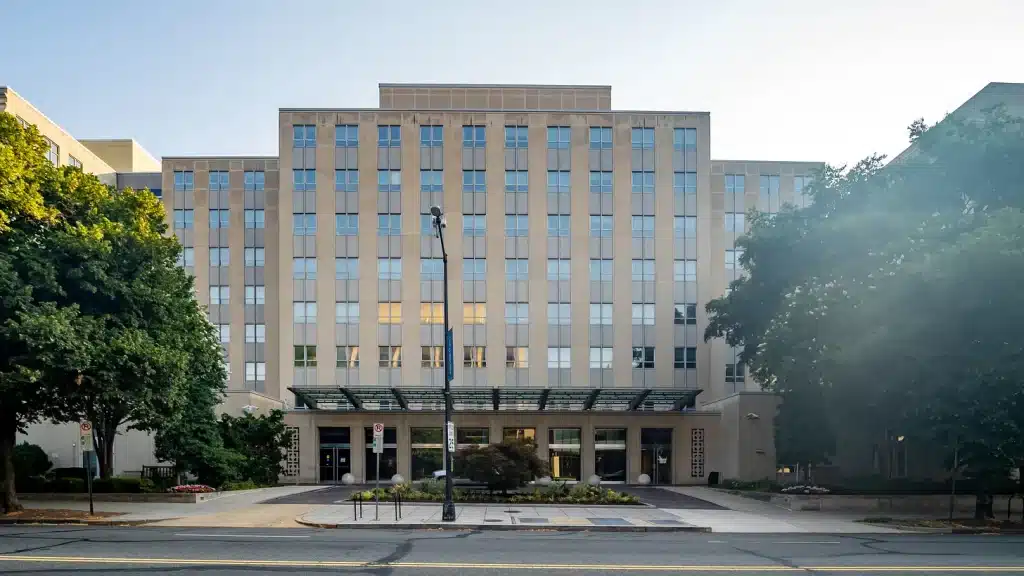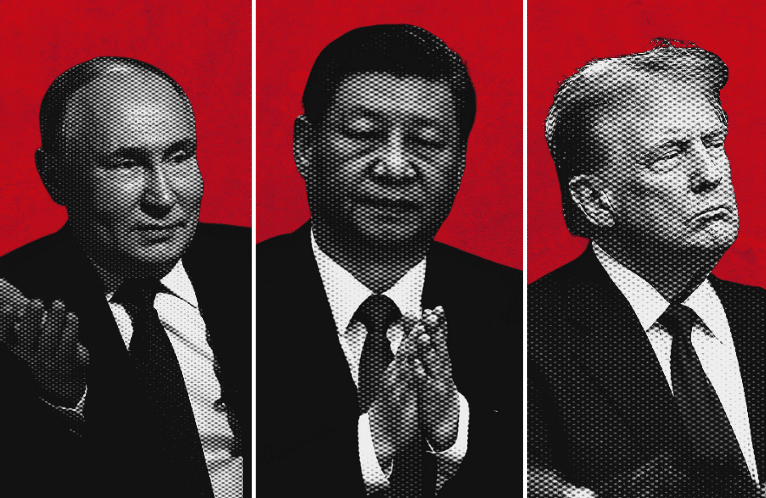The Future of US Foreign Policy: American Leadership In Asia
The Rebalance authors Mercy Kuo and Angie Tang regularly engage subject-matter experts, policy practitioners and strategic thinkers across the globe for their diverse insights into the U.S. rebalance to Asia. This conversation with Richard Fontaine –President of the Center for a New American Security (CNAS), former Senior Advisor and Senior Fellow at CNAS from 2009-2012, previously foreign policy advisor to Senator John McCain and at the State Department, National Security Council and Senate Foreign Relations Committee, and co-author of An Intensified Approach to Combating Islamic State – is the 31st in “The Rebalance Insight Series.”
As U.S. presidential candidates attempt to articulate a vision of U.S. global leadership, how should the next U.S. president frame the future of U.S. foreign policy?
The next president will inherit a world in significant turmoil. In addition to the crises that plague regions as disparate as the Middle East and the Korean peninsula, the rules-based international order is fraying in disconcerting ways. That order, which has for seven decades served our country – and the world – so well, needs to be supported and extended. The next president should articulate how America and its partners will bolster international order and how they will pursue great power peace, open trade, the expansion of freedom and democracy, and other key goals.
All of this will require American resources and actions. The next administration will need to extend the nation’s military edge and improve the economy on which a robust defense depends. It will need to pursue free trade and other open economic arrangements. It must shape norms and set priorities for international action, preserve regional balances of power, prevent vacuums of power from emerging, and stop transnational threats like terrorism.
The next U.S. president will need to demonstrate – to Americans and the world – that we are not retreating from the world but seizing its opportunities, and acting not merely in pursuit of narrowly construed national interests but on behalf of a greater good.
Assess the U.S. rebalance to Asia and explain how it might evolve under a new U.S. administration?
The Obama administration has been right to focus more attention and resources on the Indo-Pacific region, and I’d expect that the rebalance – by that or another name – will continue in the next administration. This is likely to take shape in deeper security ties with Asian countries, including not only our traditional allies but also with countries like India, Vietnam, Singapore, and New Zealand. Hopefully the next president will take office with the Trans-Pacific Partnership agreement ratified and can build on its success. I’d expect a new administration to devote significant diplomatic attention to Asia rather than issues that have preoccupied the current team, such as the Middle East peace process and relations with Iran. The next president will also have a new opportunity to reassure Europe and the Middle East that America is not “pivoting” away from them. Continued American presence and credibility in those regions will remain key to U.S. actions in Asia as well.
China, India, Japan, Russia and ASEAN are major stakeholders in shaping Asia’s geopolitical dynamics. What are the consequences of diminished U.S. leadership in the region’s security architecture?
Geopolitical vacuums are bad – they tend to be filled either by the strongest bad actor or invite swirling instability. This is one reason why the demand for more American leadership in Asia is so high in the region; most countries there do not wish to see Beijing, Moscow or chaos rule the Indo-Pacific. America can’t and won’t right every wrong, but vigorous U.S. leadership in Asia ensures that China will rise in a region in which the democratic powers are strong and working together. Presence, visibility and setting the agenda matter a great deal.
The backdrop is a deepening of intra-regional security ties as countries sense a potential threat from China’s growing power and assertiveness. North Korea’s continued belligerence fuels this phenomenon in northeast Asia as well. This presents the United States with an opportunity to strengthen its ties across the Indo-Pacific, boost its own security presence in the region, and encourage partners and allies to foster closer ties with each other.
You recently witnessed firsthand the Syrian refugee crisis in Jordan. ISIS with its global adherents from the Middle East to Asia to Europe remains a critical national security and foreign policy challenge. How should the next White House engage Asia in countering radical Islamic ideology?
Just a glimpse of the human destruction ISIS has wrought in the Middle East is enough to convince almost everyone that we must defeat this band of terrorists. Asia has a key role to play in this. Already, a number of Asian countries have joined the coalition fighting ISIS and some have provided military assets and personnel for the effort, which is likely to continue well into the next administration. There are a number of other areas in which the U.S. should engage Asia, including intelligence sharing and homeland security. It’s also clear that America lacks all the answers when it comes to the ideological attractions of violent Islamism, and the next White House should explore Asian efforts at counter-radicalization, de-radicalization and strategic messaging.
What key messaging should the next U.S. president convey regarding American leadership in the first 100 days of office?
First, America is prepared to lead; the next president has the resolve and America has the capability to exercise global leadership. This means not emphasizing “nation-building at home” rather than abroad, but stressing how a favorable international environment enhances America’s ability to score domestic successes. The next administration should visibly engage the world and not be seen as retreating from it.
Second, the U.S. takes its commitments very seriously, and the kinds of missteps that have undermined American credibility – failing to enforce the Syrian redline, or pursuing calendar-based withdrawals from Iraq and Afghanistan – will no longer plague our foreign policy.
Third, American cannot and does not wish to go it alone; leadership means marshaling collective efforts from our friends and even at times from our competitors. The U.S. will lead in setting the Asian and global agenda and work toward executing it, but we will expect others to join us in the effort – for our common benefit.
Fourth, the United States will pursue an enlightened form of national interest, one that seeks peace, prosperity, and human rights not only for Americans but in all the lands where they are currently denied.
This, anyway, would be a good start.
Mercy A. Kuo is an advisory board member of CHINADebate and was previously director of the Southeast Asia Studies and Strategic Asia Programs at the National Bureau of Asian Research. Angie O. Tang is Senior Advisor of Asia Value Advisors, a leading venture philanthropy advisory firm based in Hong Kong.
By MERCY A KUO and ANGIE O TANG Feb. 10, 2016 on The Diplomat
Read more here








